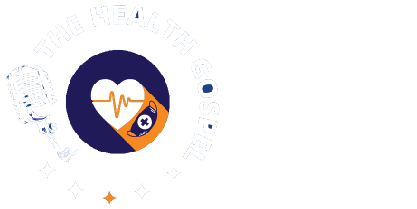
Confusion in Elderly - Series 1
It is not uncommon to observe older adults becoming unclear about their environment, time, or people around them. Confusion in the elderly can start suddenly and progress to aggression or altered consciousness within hours. On the other hand, it may start gradually and worsen over weeks to months.
Many causes of confusion in the elderly exist, among which medical conditions and medications are the most frequent. Environmental factors such as travel away from a familiar environment can also cause confusion in seniors.
This month, we will be posting articles that examine the causes, symptoms, treatment, and prevention of confusion in elderly persons.
Who is an elderly person?
The WHO defines an elderly person as anyone who is 60 years and above. However, traditionally an older adult or elderly person is one over the age of 65.
An older adult is within the geriatric age group. A doctor that cares for and treats the elderly is called a geriatrician.
What is confusion?
Confusion means being unclear, not knowing or understanding what is happening to or around you. A confused person asks the same question many times or gives different answers to the same question. Confusion in an older adult is often of sudden onset and of short duration. Hence the name ‘acute
Confusional state’. Acute confusional state or delirium usually resolves after treatment of the disease condition, discontinuation of the offending drug, or return to a familiar environment.
When confusion persists despite complete treatment of or removal of the medical condition or other causes, then the person needs further evaluation. When this happens with associated changes in personality and problems with memory and communication, then testing to confirm dementia becomes necessary. Up to 20% of persons above 65 years on admission to hospitals have delirium.
Simply put, short-term confusion is delirium while long term is more likely to be dementia.
Causes of confusion in the elderly
Delirium or dementia can be a common and distressing problem for both the person experiencing it and their loved ones.
Delirium is a sudden change in mental function often caused by an underlying medical condition, environmental factors, or medications.
Dementia is a decline in mental processes of learning, reasoning, and thinking (cognitive function) that affects the ability to recall or form new memories, language, and decision-making. Dementia is most often caused by Alzheimer’s disease, but it can also be caused by other conditions such as vascular dementia or Lewy body dementia.
Delirium and dementia can be present in the same person. For instance, a person with dementia can have worsening confusion because of a new infection or drug. In this situation, treatment of delirium would improve the patient’s functional abilities.
Thyroid dysfunction, vitamin deficiencies, and abuse of substances like alcohol can lead to intoxication and confusion in the elderly. Depression and other mental illnesses are much less common causes of confusion in the elderly.
Causes of sudden onset confusion in older people
Medical conditions that can cause confusion in the elderly include
- Urinary tract infections
- Dehydration from reduced fluid intake or increased loss if fluid
- Stroke
- Electrolyte problems such as hyponatremia and hypokalaemia
- Fluid loss from vomiting and /or diarrhea
- Acute kidney injury from fluid loss and dehydration.
- Pneumonia
- Post-surgery: Results from the stressful nature of a surgical procedure. This is called postoperative delirium (POD) and occurs within hours after surgery. POD is reversible and temporary.
- Constipation
- Low blood sugar (hypoglycemia)
- Heart failure
- Brain injury following a fall
Certain medications and the use of illicit substances resulting in intoxication or exposure to toxins can cause confusion in an older person. Substance withdrawal can also cause delirium. There are older persons who become confused because they had no access to alcohol while on admission. That is a sudden withdrawal. A combination of these can be a cause of confusion as well.
Many drugs can cause delirium but the most common group of drugs are
- Anticholinergic agents
- Benzodiazepines such as diazepam
- Xanthines used to treat asthma and other breathing problems
- Drugs used for the treatment of anxiety disorders
- Analgesics
- High blood pressure medications
- Drugs used for the treatment of sleep disorders
- Antihistamines are used for the treatment of the common cold.
Environmental factors, such as a change in surroundings or routine, can also contribute to confusion in the elderly. Relocation or visiting a new place can lead to confusion in an older adult. It’s important to create a familiar and supportive environment to help reduce confusion and maintain a sense of normalcy.
If an elderly person is experiencing confusion, it’s important for them to see a doctor to determine the cause and appropriate treatment.





